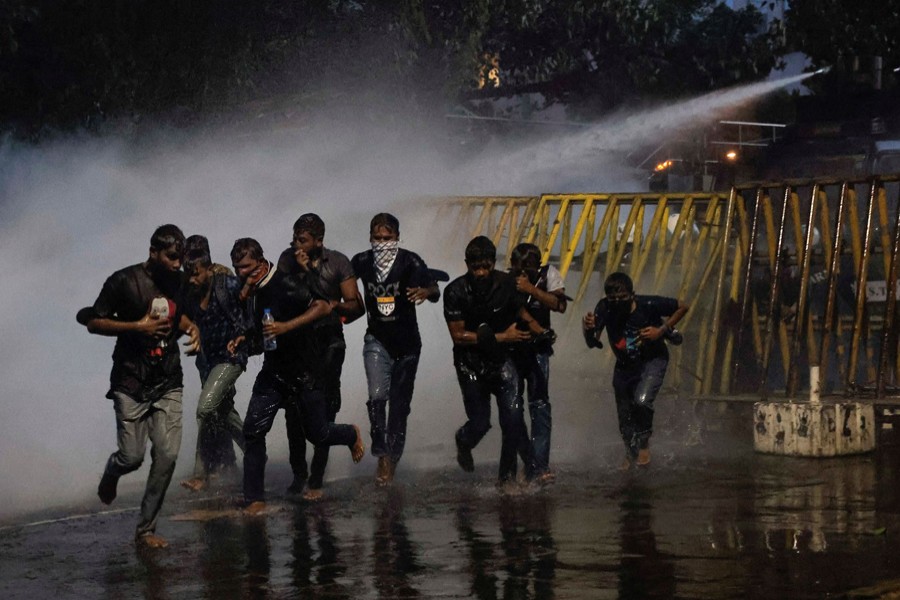Police in Sri Lanka's commercial capital Colombo imposed a curfew after firing tear gas and using a water cannon on student protesters on Friday ahead of a planned weekend rally, as public discontent escalates over the worst economic crisis in seven decades, reports Reuters.
The island nation has been crippled by a shortage of foreign exchange that has left it struggling to pay for essential imports of fuel, food and medicine. Its 22 million people have been bearing the brunt of record inflation, currency depreciation and rolling power cuts for months.
Many blame President Gotabaya Rajapaksa for the swift slide in living conditions, the worst since independence in 1948, which has sparked widespread protests that have sometimes turned violent.
"People are dying in fuel queues and can barely manage three meals a day. This is what the president and his government have done to this country," said Wasantha Mudalige, a member of the Inter University Students' Federation that organised a march to the president's house on Friday.
"We will not give up until this president and prime minister go home," Mudalige said, referring to Ranil Wickremesinghe who was appointed as prime minister in May to replace Rajapaksa's elder brother after he stepped down.
In a statement, Rajapaksa said the public were being misled and said essential supplies were scheduled to be delivered soon.
"At a time when successful solutions have been achieved to the existing problematic situation, the programme of the opposition political groups to mislead the people is very sad and unpleasant," the statement said. "This will lead to set the country back once again."
The students will stage a sit-in overnight, with other protesters including healthcare workers, clergy, trade unions and opposition supporters joining them on Saturday, organisers said.
Starting 9:00 pm local time (1530 GMT) on Friday, a curfew will be imposed in Colombo and several suburbs, police said in a statement. It did not say when restrictions will be lifted.
"People living in the areas under curfew should remain at home. Breaking of police curfew will be seen as a disruption of public order and strict legal action will be taken," a police notice said.
Security was tightened in Colombo with about 3,000 police and paramilitary deployed, along with reinforced barricades around major public buildings, police spokesperson Nalin Thalduwa said.
A spokesperson for the UN High Commissioner for Human Rights said there were concerns over Saturday's protest turning violent.
"With security forces we have seen the use of lethal weapons in protests. This is why we are putting out this preventive call because we are very concerned about what might happen tomorrow," Ravina Shamdasani told reporters.
US Ambassador to Sri Lanka Julie Chung called for the military and police to allow peaceful protests.
"Violence is not an answer... Chaos & force will not fix the economy or bring the political stability that Sri Lankans need right now," she said in a tweet.
Political instability could potentially undermine Sri Lanka's ongoing talks with the International Monetary Fund (IMF) for a potential $3 billion bailout.
The country hopes to submit a debt restructuring plan to the global lender by August and raise additional funding via a donor conference after reaching a staff level agreement.


